He fearlessly faced some of the world’s best bowlers but England legend Graham Thorpe’s biggest challenges came off the field.
Tributes have flooded in for the 55-year-old cricketer who played for England in 100 Test Matches and 82 One Day Internationals between 1993 and 2005, after his death was announced earlier today.
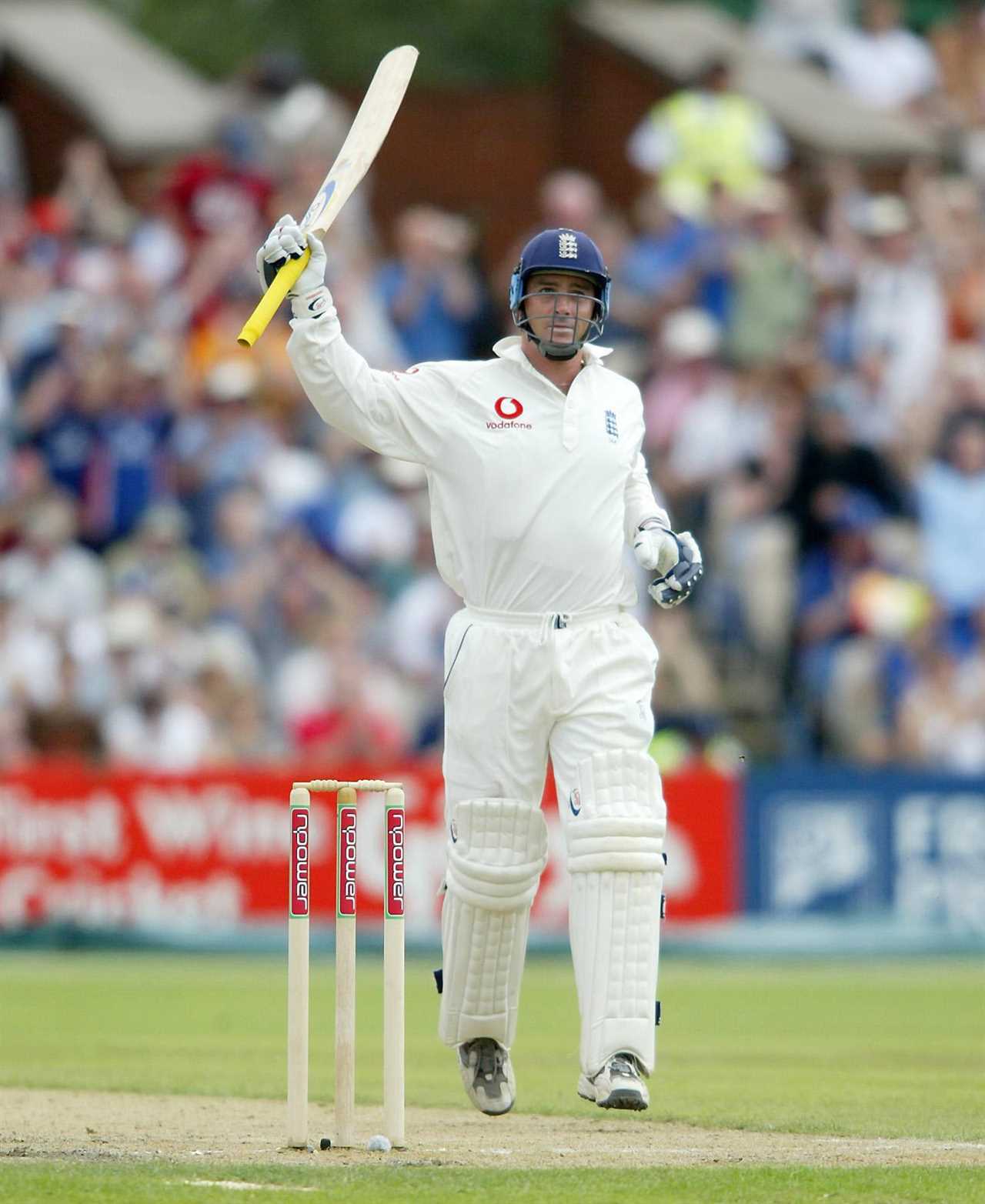
Thorpe has been described as one of the world’s greatest batsmen
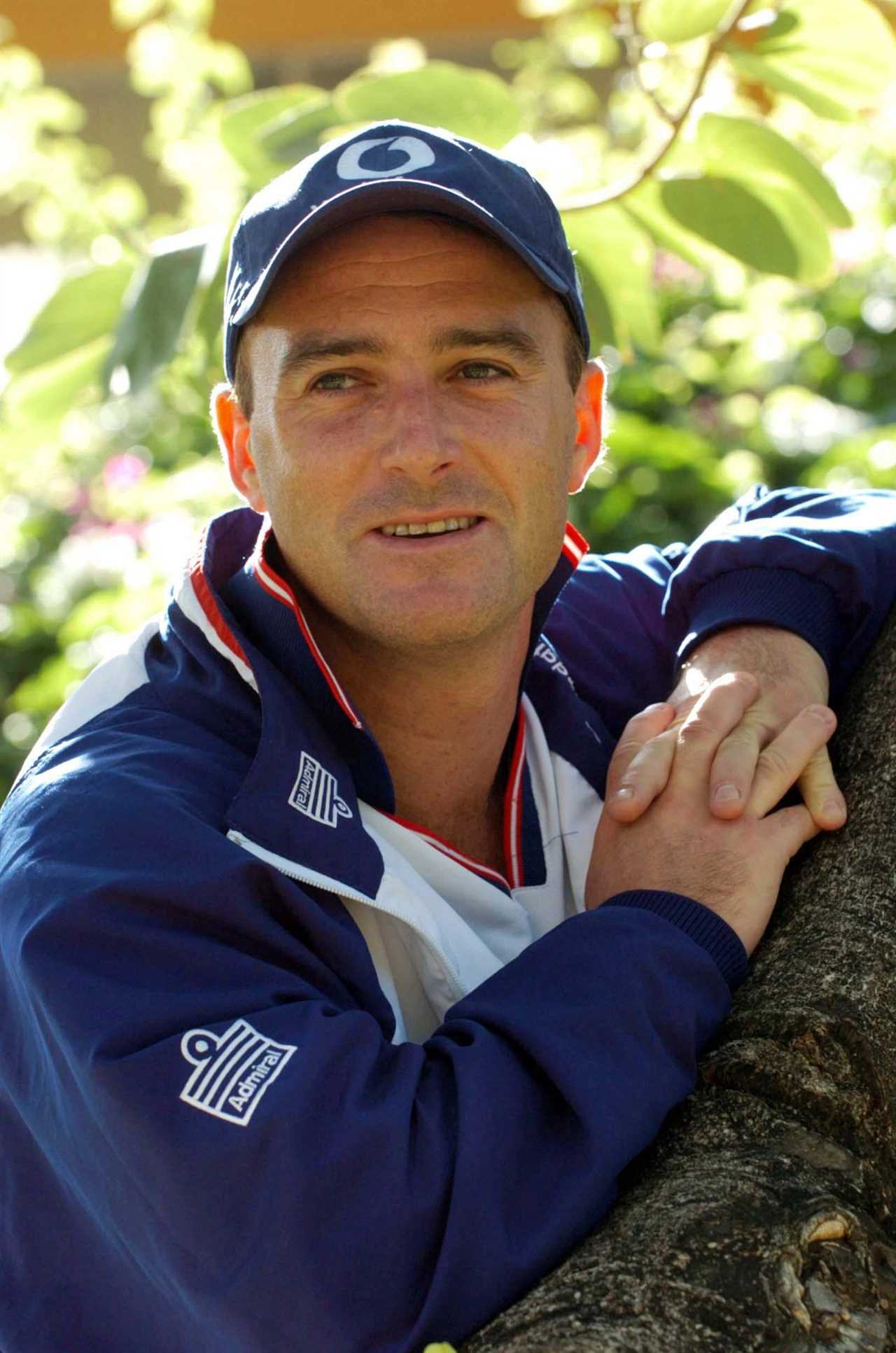
He was a larger-than-life character who became a firm favourite with fans
Stuart Broad described him as a “wonderful person” and Joe Root called him a “hero, mentor and so much more”.
Ex England captain Michael Vaughan described him as a great player and brilliant team mate on X, adding: “You have gone far too young but you leave as an England cricket legend.”
His outstanding talent saw him score 6,744 runs in 100 Tests, an average of 44, while his cheeky personality, which sometimes got him into trouble, made him a favourite with fans.
Larger-than-life Thorpe shone on the field but away from cricket he fought a well-documented battle with depression, drink and divorce.
He movingly wrote in his autobiography, Rising from the Ashes: “There came a time when I would have given back all my Test runs and Test caps just to be happy again.”
That he managed to turn his life around – thanks to the support of second wife Amanda – was testament to his strength of character.
Thorpe’s death comes two years after he fell sick and landed in hospital with a “serious” undisclosed illness.
At the time, England skipper Ben Stokes honoured Thorpe, wearing his Test cap number 564 on the back of his shirt.
He today shared the image on social media along with five heart emojis.
In a statement, the England and Wales Cricket Board announced the batsman’s death after he battled with a serious illness.
It described him as “one of England’s finest-ever batters” , adding: “His skill was unquestioned, and his abilities and achievements across a 13-year international career brought so much happiness to his teammates and England and Surrey CCC supporters alike.
“Later, as a coach, he guided the best England Men’s talent to some incredible victories across all formats of the game. The cricket world is in mourning today. “
The youngest of three boys, sport ran in Graham’s family. His dad Geoff, a draughtsman and engineering surveyor, was chairman of Farnham cricket club while his mother Toni was the scorer.
He first played men’s cricket for village team Wrecclesham aged 13 before moving to play alongside his brothers, Ian and Alan, at Farnham in the Surrey Championship.
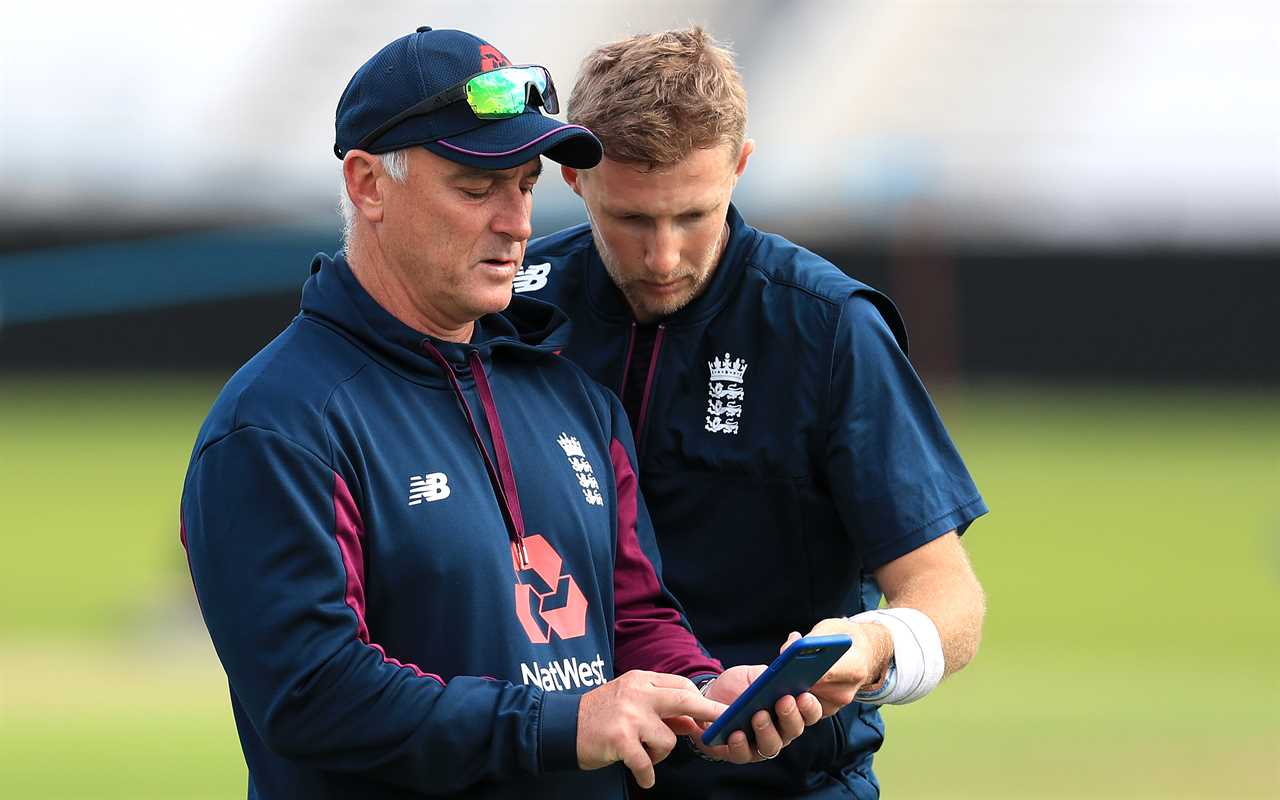
Thorpe, pictured with cricketer Joe Root, became England’s batting coach
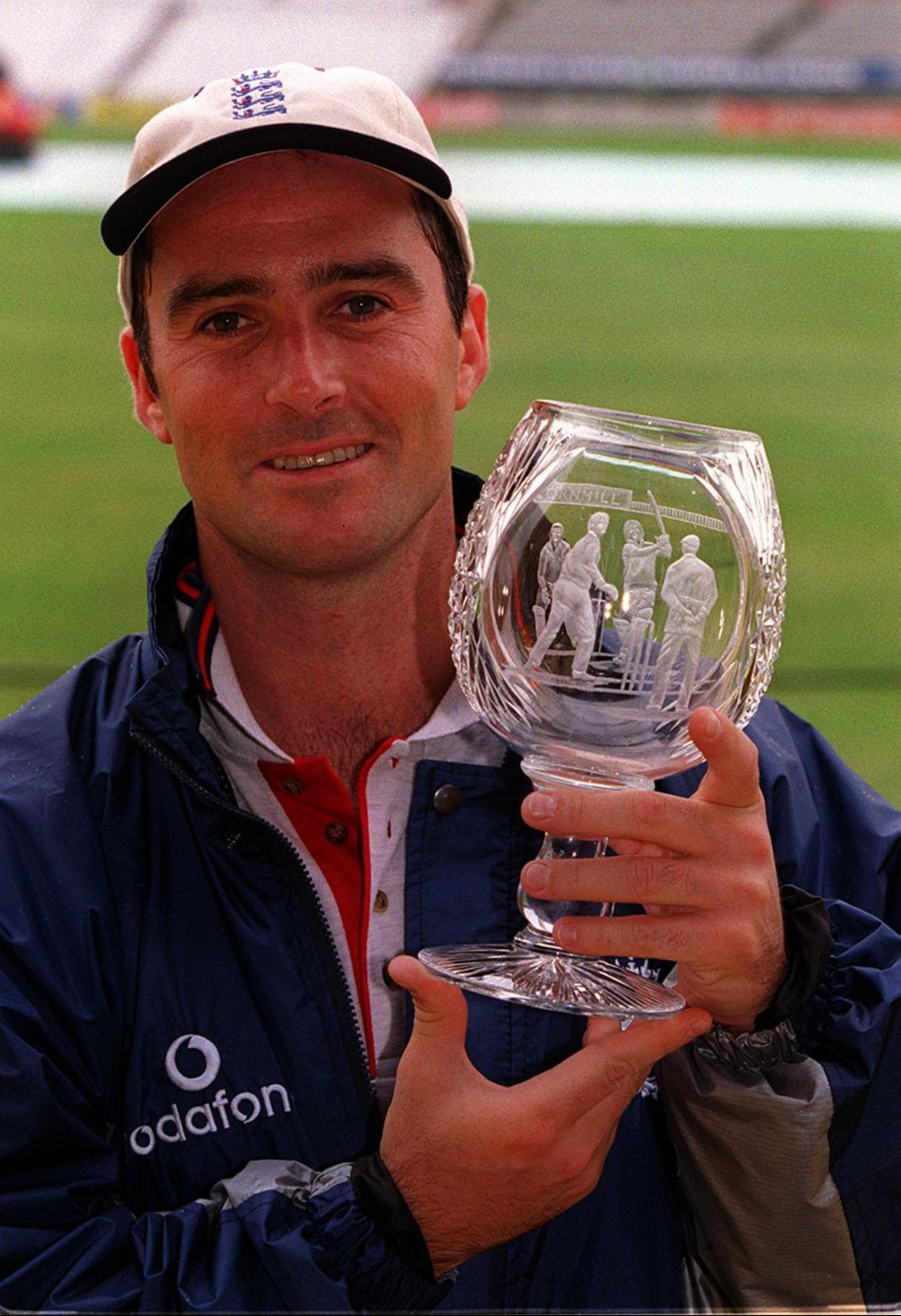
With the Cornhill Test Player of the Year Award in 1998
Thorpe was naturally right-handed as a young boy but switched to batting with his left to make it harder for his brothers to get him out when the three lads played among themselves.
He was also a promising footballer and had a trial at Brentford but chose cricket when he was offered a two-year contract by Surrey in 1988.
As a young player Thorpe developed a sometimes awkward streak and if asked to wear long sleeves he would opt for short.
In 1999, he was fined £1000 for refused to attend an official function during the Word Cup.
Thorpe later spoke about the “toxic” dressing room culture of the struggling England team in the 90s.
He said: “Not everyone in the team was always happy for you when you did well.”
Astounding debut
He once was once fined for failing to attend a World Cup event and caught smoking indoors in Australia – but it was such indiscretions that made him more human to his fans.
At his Test debut against Australia in 1993, he scored an unbeaten 114 in the second innings and had a Test best of 200 not out, made against New Zealand in 2002.
After retiring from playing in 2005, he started coaching in Australia before joining England from 2010 to 2022.
He was appointed head coach of Afghanistan in March 2022 but he was then admitted to hospital with a serious illness.
While he shone as a batsman, Thorpe’s personal life also made the headlines.
He met first wife Nicky, an air hostess, while on a Surrey pre-season tour to Dubai where she was on holiday. They were at a party when he tripped over her foot.
They swapped numbers and when Nicky returned to Britain a few weeks later she called him. He turned up at her home in Bournemouth on his Triumph Dolomite.
They married in 1995 and enjoyeda honeymoon to Mauritius before moving into a five-bedroom mansion in Epsom.
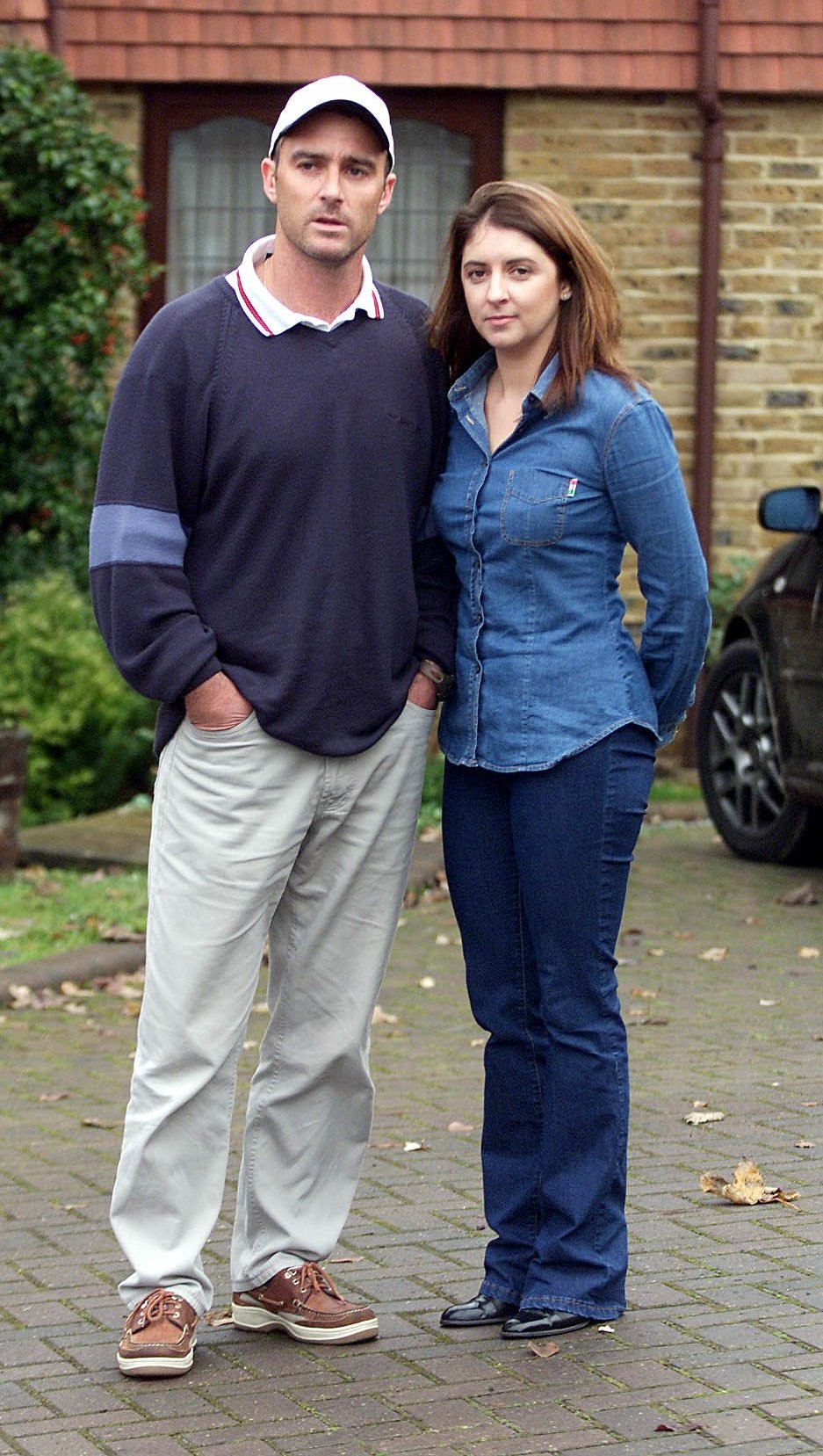
With first wife Nicky as they tried to salvage their marriage
Nicky quickly fell pregnant but the couple were left devastated when she was rushed to hospital with an ectopic pregnancy while he was on tour.
The tragic event would take its toll on them both.
She later said: “It took two days for Graham to get back. I was in so much pain I thought I would die. I just wanted him there holding my hand.”
Despite going on to have two children – Henry, born in November 1996 and Amelia in April 1999 – the long tours and time apart would spell the death knell for their marriage.
Affair scandal
Thorpe was known as cricket’s Mr Clean until his last tour to New Zealand in 1997 when he was pictured with 20-year-old student Olivia Martin, who he was rumoured to have had a fling with.
While Nicky forgave him, she later claimed he admitted to having seven affairs during their time together.
In 2001, Nicky left him for Tim Henman’s fitness trainer, Kieron Vorster, who lived close to the couple.
Thorpe was on tour at the time and rushed back to England from India to save his marriage but his attempts failed.
Nicky said at the time: “Graham has admitted to me that he has been unfaithful seven times during our relationship.”
The split plunged Thorpe into depression.
He later wrote: “My life fell from under me. I had no foundations -nothing.
“Was I depressed? Oh, yes. Was I suicidal? No, but I think I was pretty close to the edge. I didn’t want to leave the house, I didn’t want to talk to anyone, I couldn’t see any hope. I’d just stay at home and have another beer.
“I was living alone in our family home behind these permanently drawn curtains. I remember waking up one morning and seeing this mess in our front room – an empty bottle of Scotch, dirty plates, a mountain of fags.
“My wife had left me, she’d taken Henry and Amelia and I was desperate. I walked to the fridge and saw this beer. It was 10 o’clock in the morning but I thought ‘What the hell. I’ve got nothing else.’
“It wasn’t a daily thing but sometimes I’d fall asleep on the couch at three o’clock in the afternoon having had three or four beers.”
Thorpe’s second wife Amanda, who he wed in 2005 after welcoming a daughter Emma two years earlier, gave him the stability he so longed for.
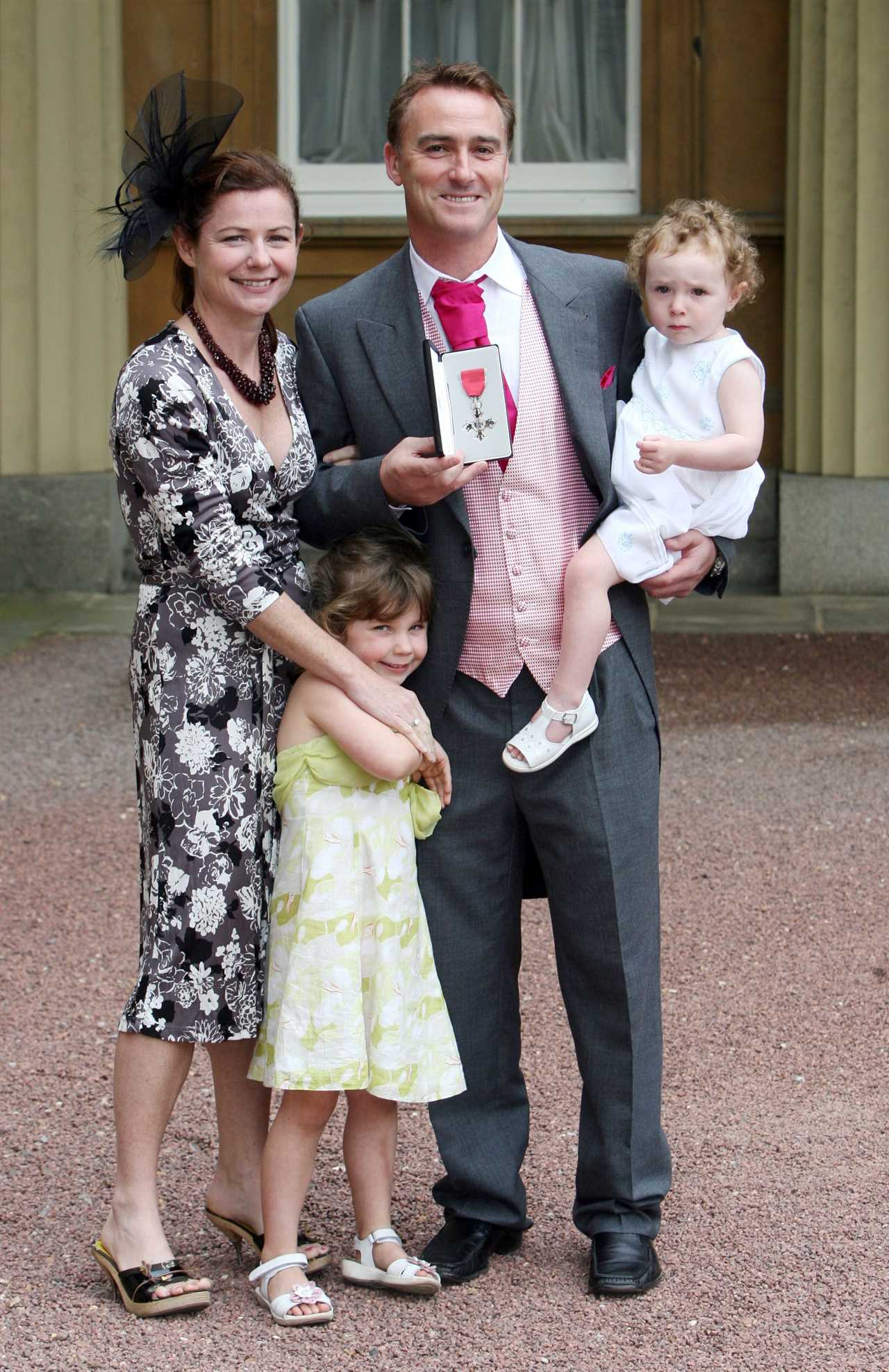
Thorpe accepting his MBE in 2007 with wife Amanda, daughter Emma and step-daughter Kitty
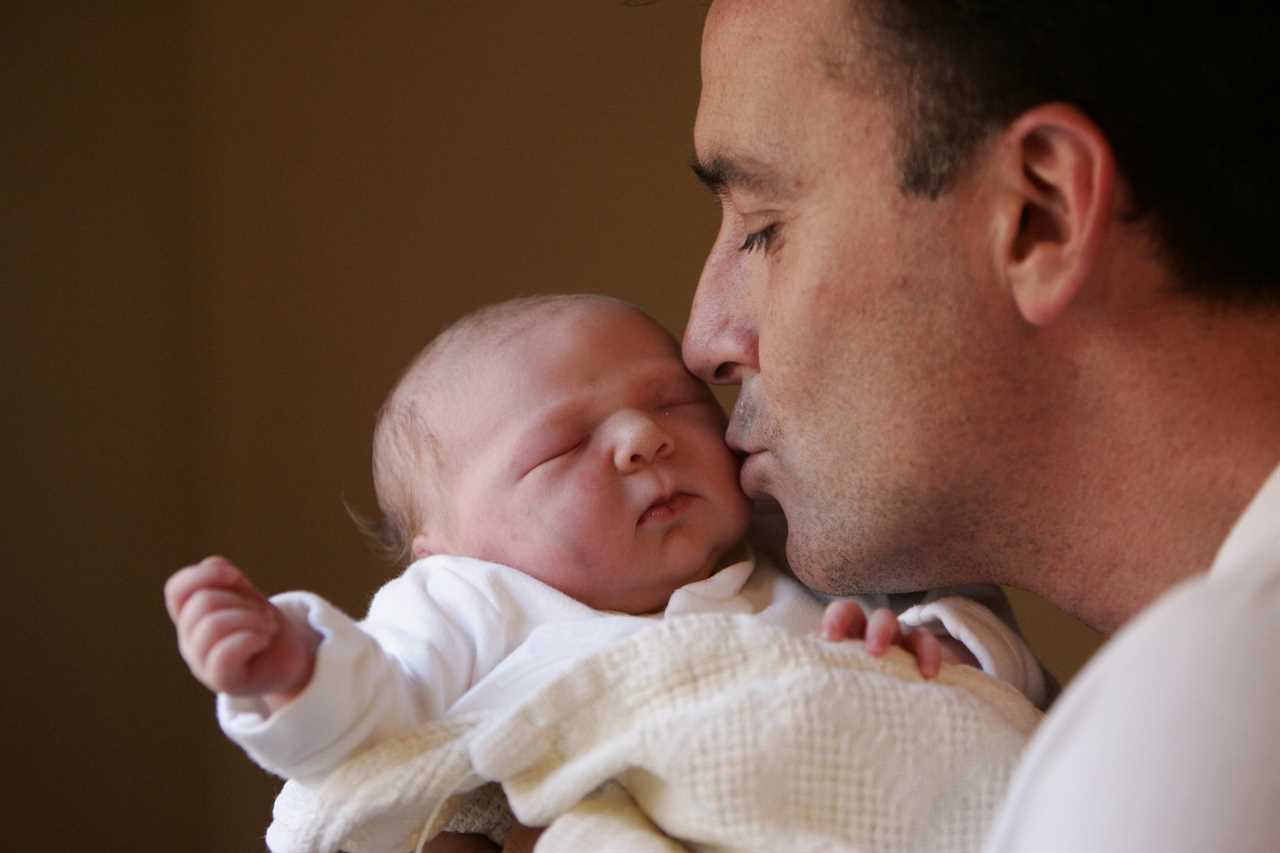
With newborn daughter Emma in 2005
He was also step-father to Amanda’s daughter from a previous relationship, Kitty.
The couple met at a benefit function for Surrey team-mate Ali Brown and Thorpe credits Amanda with persuading him to return to cricket.
Thorpe enjoyed a renaissance in 2003 when he scored 124 on his England return in a thrilling win over South Africa at The Oval.
He was in the best shape of his life but, after a back operation in 1998, Thorpe was reliant on painkillers to play.
He announced his international retirement aged 36 in May 2005.
Victory return
The following year he was made an MBE and worked as an analyst for the BBC and Sky Sports and as an assistant coach in Sydney for New South Wales.
In 2010 he took a coaching role with England but was sacked after England lost the Ashes in a dismal performance.
In a typically rebellious act, he was also caught smoking a cigar in his hotel room during a post match drinking session in Australia which led to police being called at 6am.
Thorpe was named head of Afghanistan’s men’s team two years ago but it was a role he sadly never got to take up after falling “seriously ill.”
As tributes poured in, Shaun Udal, who played alongside Thorpe for England, described him as a “tenacious, talented and determined cricketer.”
He said: “As a player, he was undoubtedly one of the best we have produced, against all oppositions, in all circumstances and in all conditions.”
True legend
Another of Thorpe’s former team-mates Derek Pringle said the batsman was a ‘fabulous cricketer’ despite his troubles, writing: “Graham Thorpe had his demons but this is just such a sad day…..RIP Thorpey, a fabulous cricketer and team mate.”
Ex-England captain David Gower told Sky Sports: “One of his highlights and not the many hundreds he scored was the 64 not out at Karachi in 2000 where England won a series for the first time in yonks against Pakistan, in Pakistan, and they had to do it in pitch black darkness.
“We up in the commentary box 80 or 90 metres away couldn’t see anything live. Only the genius of TV cameras allowed us to see what was going on, but that was a good example of his grit, determination and will to win.”
As the world of cricket mourns one of England’s greatest, even the most fitting tributes fail to capture the torment and talent of a man who will go down in history as a true legend.
 Cricket NewsTips and TricksPrivacy PolicyTerms And Conditions
Cricket NewsTips and TricksPrivacy PolicyTerms And Conditions
